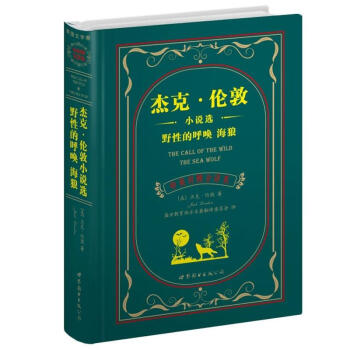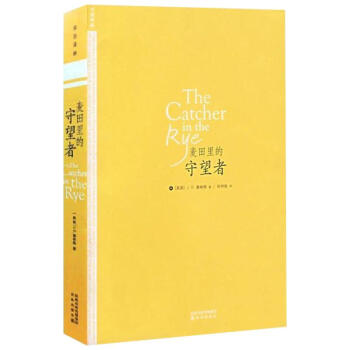

具體描述
內容簡介
《美國公民讀本(英漢雙語版)》是美國著名教育傢、曆史學傢,芝加哥大學第二任校長哈裏·P·賈德森教授為美國教師和學生寫作的一本通俗公民讀本。它具有雙重功能:一方麵讓學生通過此書得到閱讀訓練,同時讓他們從書中獲取更多知識。作為一本公民讀本,書中對愛國精神、公民權利與自由、政府機構及其運行、財政稅收、公共管理等進行瞭闡述。當然作者寫作此書的本意並非構建一部公民學或曆史學的大作,而是一種通俗普及讀本。在講述這些知識時,當然會涉及美國曆史,因為書中概括的這些公民常識,都是曆史地、動態地形成的,每一個都淵源有自、可成為案例援引。書中各章節還插入瞭與該時期曆史文化相關的美國名傢筆下的文學篇章。讓本書內容更加豐富而具可讀性。
正如作者所言:"寫作此讀本,旨在嚮讀者傳授純粹的愛國精神與公民智慧。"國內齣版的雙語版,也本著兩個目的:一是讓學生通過閱讀,英文水平得到提高;二是拓寬其知識和視野,成為一位卓越的世界公民。
作者簡介
作者:(美國)哈裏?P?賈德森 譯者:洪友 哈裏?P?賈德森(1849-1927)美國著名教育傢和曆史學傢、芝加哥大學第二任校長,其研究方嚮主要為憲法和外交史。 賈德森齣生於紐約詹姆斯鎮,畢業於威廉姆斯學院,後從事教育工作,1885-1892年在明尼蘇達大學擔任曆史學與教育學教授,後任芝加哥大學政治科學教授兼係主任,以及藝術、文學與科學係教授兼係主任。 芝加哥大學創始人兼校長威廉?哈珀欣賞賈德森教授廣博的研究領域與治學風格,邀他加入芝加哥大學。賈德森教授也被哈珀校長卓越的教育規劃所吸引。1892年,賈德森從明尼蘇達大學來到芝加哥大學,幫助組建芝加哥大學的教育體係與規劃,與哈珀共同領導和管理芝加哥大學。1906年哈珀去世,賈德森接任校長,直至1923年退休。 賈德森教授寫作瞭不少著作,除學術之作外,他還為美國學生編寫瞭一些經典讀物,如《美國公民讀本》和《美國學生文學讀本》(1-8級)等。內頁插圖
目錄
CHAPTER I Our Country
CHAPTER II The Republic
CHAPTER III Laws and Their Makers
CHAPTER IV What We Mean by Government
CHAPTER V How the People of Europe Found America and Came to Live in It
CHAPTER VI National Independence
CHAPTER VII A Federal Republic
CHAPTER VIII American Home Rule
CHAPTER IX The Law-Makers
CHAPTER X How Laws Are Enforced
CHAPTER XI The President's Cabinet
CHAPTER XII How Laws Are Enforced in the States
CHAPTER XIII Judge and Jury
CHAPTER XIV How the Government Gets Money
CHAPTER XV Who We Are
CHAPTER XVI Who Are Our Rulers
APPEND A Brief Account of the Constitution of the United States
PART II 中文閱讀
CHAPTER 01 我們的祖國
CHAPTER 02 共和國
CHAPTER 03 法律和立法者
CHAPTER 04 政府對我們的地位是怎樣界定的
CHAPTER 05 歐洲人怎樣發現美洲並遷居於此
CHAPTER 06 民族獨立
CHAPTER 07 一個聯邦製的共和國
CHAPTER 08 美國的地方自治
CHAPTER 09 立法者
CHAPTER 10 法律是怎樣執行的
CHAPTER 11 總統內閣
CHAPTER 12 法律在各州是怎樣執行的
CHAPTER 13 法官和陪審團
CHAPTER 14 政府怎樣籌錢
CHAPTER 15 我們是誰
CHAPTER 16 誰統治我們
精彩書摘
CHAPTER I Our Country
1. Why We Love Our Country. Every good American citizen loves his country and is proud of it. We have very good reasons both for the love and for the pride. Ours is one of the greatest nations of the world, in area of territory, in number of people, in wealth and in power. We also think that the citizens of the great republic are among the most intelligent in the world. Free public schools make it possible for every one to get some sort of an education, and books and newspapers are found in every home. But better still is the liberty which we enjoy. We have no king or emperor to rule over us. We choose our own officers of state, who, indeed, are not our rulers, but are merely public servants. In some countries the police are constantly interfering with people. A public meeting cannot be held without the consent of the police. The police watch the hotel registers and keep careful track of all strangers. If a club or a debating society is formed, the police have to be notified. Then, too, every young man has to spend several years as a soldier-for most of the nations of Europe keep vast armies always ready for war. Now, with us the policeman and the soldier are much less prominent. As long as one is not a thief or some other sort of criminal, the police let one quite alone. And no one in our country needs to be a soldier at all. Our few soldiers are all volunteers. In short, we live in a free land, in which every one may live his life in his own way, so long as he does not interfere with the rights of his neighbors.
2. These are some reasons for loving our country. There are many other reasons too, but perhaps these are enough to show what we mean. Still, it may be as well to add one more-it is our home. There are few words dearer to any genuine man or woman than home. But just as the home is the center of the life of the family, so our country is the center of the nation's life. It is our home land-the land of our fathers and mothers, of our brothers and sisters. And he is a poor ingrate who does not dearly love his home.
3. What We Mean by a Patriot. A patriot is one who loves his fatherland-his country. People show patriotism in various ways. In time of war, when the national safety is menaced by a public enemy, men are ready to enter the army and to give their lives, if need be, in defense of their country. A true patriot, too, is pleased by everything which reflects credit on his homeland. He is anxious that its public affairs shall be stained with no meanness or dishonor. He is anxious that its government shall always be just and generous in dealing with the governments of other nations. He does not wish an advantage secured from any other nation, especially from a weaker one, by wanton violence or by fraud. He is delighted with every advance of his country in the arts of civilization, and pained at the triumph of evil men or of vicious measures. And he is always ready to do what he can to make his country better or stronger or safer.
4. What a Patriot is Not. We have seen some of the reasons which an American has for being proud of his country. But in order to be a patriot it is not at all necessary to be a boaster. Indeed, a true patriot is so sure of the solid merit of his country that he does not need to say much about it. If a man is in the habit of talking about his own honesty, it leads others to suspect that perhaps after all he is trying to cover up a streak of dishonesty. At any rate, bragging is a weak and foolish habit. And bragging of one's country is quite as foolish as it is for a boy to boast of his father's wealth or of his sister's beauty.
5. Neither is it a sign of patriotism to despise other countries. We may love our own the best, but one who does not know that other countries also are great and powerful and famous, is merely very ignorant. If we respect other nations for their good qualities, we are all the better fitted to understand and admire the like qualities in our own.
6. Sneering at other races is no sign of patriotism. Boys and girls sometimes are apt to think themselves better than one of their mates who was born in a foreign land, and to show their superiority by using for him some sort of foolish nickname. But this is very silly. Is he a German? The Germans have some of the greatest names and have done some of the greatest deeds in all history. Is he an Italian? Italy is a beautiful land, famous for some of the finest painters and musicians, and for some of the wisest statesmen and the bravest soldiers of any land. Is he a Jew? They are a wonderful people, and a list of the great men who are Jews would be a very long one. Indeed, one may well be glad and proud to belong to any of these races, or of many others which might be mentioned.
7.What a Patriot Should Know. It is not enough for a patriot to think that his country is a very good and comfortable land. No opinion is worth much unless it comes from actual knowledge. It is a very commonly observed fact that the more ignorant people are, the more they are stuffed with prejudices. But prejudice is merely a strong opinion which is formed with a very scanty basis of knowledge. Now, in fact, no opinion is worth much, as we said, unless it belongs to one who knows what he is talking about. A jeweler who has spent all his life in a city, probably would not know much about farming. If, then, he should go into the country and begin giving a farmer advice about the management of his crops, the farmer would laugh at him. The jeweler's opinion about repairing a watch would doubtless be better than the farmer's, but, on the other hand, the farmer would be apt to know more about planting corn. In other words, it is knowledge that gives an opinion its value.
8. Then, our opinions about our country are not worth very much unless we know something of its history. We ought to know how it is governed, how the laws are made, how they are enforced, what the courts are and how they do their work, what are the rights of a citizen and what are not his rights. We ought to know how our country came to be what it is, who are some of the great men it has produced, and what they have done. With some of this knowledge our opinions are much less likely to be mere prejudices.
9. There is another important reason for knowing something about the way in which our country is governed. With us about every man of full age, that is, twenty-one years old or over, is a voter. The most of all public officers are elected. And a voter is not very useful whose ideas of what he is voting for are in a fog. He is easily led by shrewd and unscrupulous demagogues; he is simply a tool, a slave. It is often said that knowledge is power. We might add that knowledge of public affairs is liberty.
10. The Flag. Every nation has a flag of its own, with an appropriate combination of colors and symbols. This flag flies from the mast of a ship on the ocean, thus indicating at once to what country she belongs. The flag is raised on a staff in forts and military, camps, is carried by soldiers on the march and in battle, and is used very commonly by people in token of their patriotism. On the Fourth of July we see the American flag everywhere, and it is the custom now in many parts of the country to keep it floating over the school-houses whenever school is in session. The American flag has thirteen horizontal stripes, seven red and six white. In the upper corner, next the staff, is a blue square filled with white stars. The thirteen stripes indicate the thirteen original states, and the stars show the number of states. When a new state is admitted, on the next Fourth of July a new star is added to the flag.
11. There are now forty-five states in the Union. But no flag made before July 4, 1896, should have more than forty-four stars. Utah became a state January 4, 1896. Every flag hoisted over a national fort or ship or building, on the third of July, 1896, had forty-four stars, showing the number of states on the Fourth of July, 1895, but on the morning of the Fourth of July, 1896, every such flag should have had forty-five stars.
12. How a Famous Song Was Written. During the second war with England, in 1814, a British expedition attempted to capture the city of Baltimore. In order to do that it was necessary first to reduce Fort McIIenry, and so the warships moved up near it and opened a heavy fire of cannon-balls, bomb-shells, aud rockets.① During the battle a small party of Americans, carrying a flag of truce, went out to the British fleet in order to secure the release of an American citizen who had been taken prisoner. One of the party with the flag of truce was Francis Scott Key. The business being finished, the Americans were detained overnight in the fleet, far to the rear of the attack, in order that they might not be able to give information of what they had seen. The bombardment went on long after dark, and Mr. Key eagerly listened to the sound of the guns and watched the red rockets and the bursting bombs, being sure as long as the firing continued that the fort still held out. But late in the night the guns became silent. Did it mean that the attack had been repulsed? Or had the fort surrendered? Only the daylight would tell. Before dawn the anxious Americans were watching. The first faint light of day showed them the stars and stripes still floating over the ramparts of the fort. Then they knew that the attack had failed and that the Americans were victorious. Mr. Key walked the deck in deep emotions of joy, and gave vent to his feelings in the verses of a patriotic song. These he scribbled on a scrap of paper which he found in his pocket. On reaching land he gave his song to a friend, and it was sung at a theater in Baltimore, the singer waving a flag as she sang. The audience were wild with enthusiasm. In a very short time the new song went all over the republic, and is now known and loved by all Americans. It is called "The Star-Spangled Banner."
13. The Storm at Samoa. In the spring of 1889 there was trouble at the island of Samoa, in the South Pacific, and warships were sent there by Germany, Great Britain, and the United States. These vessels lay at anchor in the harbor of Apia. The harbor is a small semi-circular bay, with shoal water extending far from the shore and a coral reef running nearly across the entrance. A narrow break in the reef allows ships to enter the bay. One day in March a heavy storm came up. So fierce was the wind and so tremendous the waves that the vessels dragged their anchors, and one after another four warships and ten other craft were driven on shore and wrecked. Nearly a hundred fifty of the seamen lost their lives. In the fury of the hurricane the captain of the British ship Calliope decided to leave the harbor and force his way out to sea, as the only means of safety from shipwreck. All steam was put on, and inch by inch the gallant ship fought its way in the teeth of the howling wind and the crashing waves. "This manoeuver of the British ship is regarded as one of the most daring in naval annals. It was the one desperate chance offered her commander to save his vessel and the three hundred lives aboard. An accident to the machinery at this critical moment would have meant certain death to all. To clear the harbor the Calliope had to pass between the Trenton (the American flagship) and the reef, and it required the most skilful seamanship to avoid collision with the Trenton, on the one hand, or total destruction upon the reef, on the other. The Trenton's fires had gone out by that time, and she lay helpless almost in the path of the Calliope. The doom of the American flagship seemed but a question of a few hours. Nearly every man aboard felt that his vessel must soon be dashed to pieces, and that he would find a grave under the coral reef. The decks of the flagship were swarming with men, but, facing death as they were, they recognized the heroic struggle of the British ship, and as the latter passed within a few yards of them a great shout went up from over four hundred men aboard the Trenton. 'Three cheers for the Calliope!' was the sound that reached the ears of the British tars as they passed out of the harbor in the teeth of the storm; and the heart of every Englishman went out to the brave American sailors who gave that parting tribute to the Queen's ship. The English sailors returned the Trenton's cheer, and the Calliope passed safely out to sea, returning when the storm had abated. Captain Kane, her commander, in speaking of the incident, afterward said: 'Those ringing cheers of the American flagship pierced deep into my heart, and I shall ever remember that mighty outburst of fellow-feeling which, I felt, came from the bottom of the hearts of the gallant admiral and his men. Every man on board the Calliope felt as I did; it made us work to win. I can only say, 'God bless America and her noble sailors!'"① They were thrilled with admiration for the dauntless courage of the brave British seamen on the Calliope; and in their own extremity they showed equal courage. Twice England has been our enemy in war. But, after all, in peace we cannot forget that Englishmen and Americans are of one blood. Late in the day, when ship after ship had been dashed to destruction, and the Trenton, shattered and helpless, seemed drifting to certain wreck, the anxious people on the beach heard music amid the roar of the hurricane. It was the band of the Trenton playing "The Star-Spangled Banner." The gallant sailors were facing death with the national music in their ears and its ringing words in their thoughts. It carried their minds back to the homeland which they loved and for which they were ready to die.
14. Another Poem About the Flag. Joseph Rodman Drake was a young American poet of great promise. His early death (he died in 1820, at the age of twenty-five) came before he had fully shown his rare powers. When he was only seven years old he had much literary knowledge, and at fourteen he had already written poetry of good quality. His principal poems were "The Culprit Fay" and the stirring stanzas on "The American Flag."
……
前言/序言
用戶評價
這本書的價值遠超齣瞭普通讀物的範疇,它更像是一扇通往理解當代美國社會復雜性的窗口。我關注的重點是它如何處理那些敏感和有爭議的曆史議題,比如奴隸製、原住民問題以及民權運動的後續影響。令人欣慰的是,作者並沒有迴避這些‘陰影’,而是以一種非常坦誠和辯證的方式進行瞭呈現。它教會瞭我如何看待曆史的矛盾性——一個國傢可能同時擁有偉大的理想和深刻的缺陷。閱讀這些章節時,我的內心經曆瞭一場關於正義與妥協的深刻反思。它提供的不僅僅是事實的陳述,更是一種批判性思維的訓練。我開始意識到,理解一個國傢,必須接受其所有麵嚮,無論光榮還是黯淡。這本書給予瞭讀者這種成熟的視角,是非常難得的。
評分我必須稱贊一下這本書在結構上的精妙布局,它似乎深諳讀者的“疲勞點”規律。每當我覺得即將被大量信息淹沒時,總會巧妙地穿插一些簡潔的引文或者小傳記,這些小插麯就像是精神上的“咖啡時間”,立刻將我的注意力重新拉迴來。這些穿插的材料往往是某個重要人物的隻言片語,或是某項關鍵法案的摘要,它們用最凝練的方式概括瞭復雜事件的核心精神。這使得閱讀的節奏張弛有度,既保證瞭知識的密度,又提供瞭必要的喘息空間。對於通勤路上或者碎片時間閱讀的人來說,這種設計簡直是福音。我發現自己不再是被動地接收信息,而是主動地在這些“亮點”和“主綫”之間建立聯係,構建自己的知識地圖。這證明瞭編寫者在用戶體驗設計上投入瞭巨大的心力。
評分作為一名對美國政治製度充滿好奇的社會學愛好者,我發現這本書在內容選取上達到瞭一個絕妙的平衡點——它既有宏觀的曆史敘事,又不乏微觀的製度解析。它沒有落入那種空泛地贊美或批判的窠臼,而是以一種近乎冷靜的、學術的態度,去剖析美國民主的起源、演變以及其內在的張力。我尤其欣賞其中關於憲法修正案的討論部分,文字非常精煉有力,將復雜的法律條文用易於理解的語言進行瞭闡釋,同時還引用瞭一些標誌性的最高法院判例來佐證觀點。這種深度和廣度兼具的敘述方式,極大地滿足瞭我求知欲。對我來說,閱讀過程更像是一場與曆史先驅者的對話,我能清晰地感受到那些塑造瞭現代美國的思想和理念是如何一步步紮根並開花結果的。這本書無疑為理解“美國例外論”提供瞭一個非常堅實的基礎。
評分我得說,這本書的語言風格對於非英語母語的學習者來說,簡直是一股清流。很多同類的雙語讀物,要麼是英文部分過於艱澀,要麼是中文翻譯過於口語化,導緻學習體驗斷裂。但這本書的英文部分用詞考究,句子結構清晰流暢,完全是地道的學術或新聞報道用語水平,非常適閤想要衝擊高階英語考試的讀者。而中文譯文則保持瞭一種恰到കൊd的典雅和準確,既保留瞭原文的精髓,又確保瞭文化概念的準確傳達,比如對一些俚語或特定曆史情境下錶達的翻譯,都處理得非常到位,讓人在學習語言的同時,也能領悟到深層的文化內涵。我甚至會把一些英文段落抄寫下來進行模仿練習,因為它提供瞭一個極佳的範本,展示瞭如何用精準的語言來論述嚴肅的主題。這種雙嚮的助力,讓我的學習效率翻倍。
評分這本書的封麵設計和排版簡直太棒瞭,拿到手的時候,我就被它沉穩又不失現代感的氣質吸引住瞭。字體選擇上,無論是中文還是英文,都非常清晰易讀,而且雙語對照的版式設計,讓我在閱讀過程中可以很自然地在兩種語言之間切換。這對於我這種希望提高英語閱讀能力,同時又想深入瞭解美國曆史和文化背景的讀者來說,簡直是量身定做。特彆是那些曆史名詞和關鍵術語的翻譯,做得非常地道和準確,沒有那種生硬的機器翻譯腔調,感覺像是專業的曆史學者親自校對過的。每一次翻閱,都能感受到編輯團隊在細節上花費的心思,無論是紙張的質感,還是裝幀的牢固程度,都體現瞭高水準的製作工藝。這不僅僅是一本教材,更像是一件值得收藏的文化載體。我特彆喜歡它在章節劃分上的邏輯性,總能循序漸進地引導讀者進入更復雜的曆史語境,讓人在不知不覺中,知識體係就得到瞭極大的擴充。
評分健脾栗子湯
評分三鮮魷魚湯
評分三鮮湯
評分菠菜肉丸湯
評分推薦一下,有助於理解和溝通
評分¥34.70(5.9摺)
評分白蘿蔔牛肉湯
評分deep
評分這書裡麵有明顯歧視有色人種的言論,公民讀本?真是這樣也不難理解一些事情瞭。
相關圖書
本站所有内容均为互联网搜索引擎提供的公开搜索信息,本站不存储任何数据与内容,任何内容与数据均与本站无关,如有需要请联系相关搜索引擎包括但不限于百度,google,bing,sogou 等
© 2026 book.tinynews.org All Rights Reserved. 静思书屋 版权所有

![英詩經典名傢名譯:華茲華斯詩選 [Selected Poems of William Wordworth] pdf epub mobi 電子書 下載](https://pic.tinynews.org/10973254/rBEGE0-ahDwIAAAAAABBKmyCp_gAAARxQIjsbUAAEFC179.jpg)
![牛津英語語法要點精講(附語法測試CD-ROM光盤1張) [Oxford Learners Grammar] pdf epub mobi 電子書 下載](https://pic.tinynews.org/10035362/9daac79c-109a-4132-9181-198a68289eb8.jpg)
![幼小銜接教程:我要上小學啦(英語準備知識)(附VCD光盤1張) [6-7歲] pdf epub mobi 電子書 下載](https://pic.tinynews.org/10038764/94e1300d-e13c-4dbf-8d86-3109a0d3f682.jpg)










![牛津高階英漢雙解詞典(第6版) [Advanced Learners English-Chinese Dictionary] pdf epub mobi 電子書 下載](https://pic.tinynews.org/10127117/9bd45da5-2c9c-4be9-bccb-eaa4764abe08.jpg)
![星球大戰5:帝國反擊戰(英文原版) [Star Wars: The Empire Strikes Back] pdf epub mobi 電子書 下載](https://pic.tinynews.org/11912101/572a9744N8b6b1dec.jpg)
![星球大戰6:絕地歸來(英文原版) [Star Wars: Return of the Jedi] pdf epub mobi 電子書 下載](https://pic.tinynews.org/11912103/572a978bN42d8f813.jpg)
![星球大戰4:新希望(英文原版) [Star Wars: A New Hope] pdf epub mobi 電子書 下載](https://pic.tinynews.org/11912105/572a9763N0363d295.jpg)
![星球大戰7:原力覺醒(英文原版) [Star Wars: The Force Awakens] pdf epub mobi 電子書 下載](https://pic.tinynews.org/11919742/572a9801Na35159f9.jpg)

